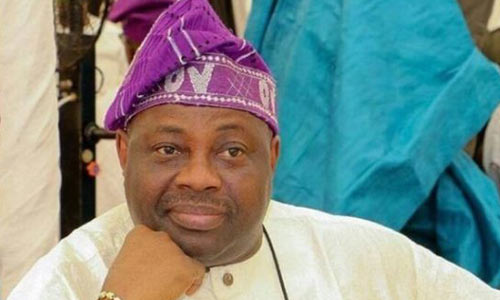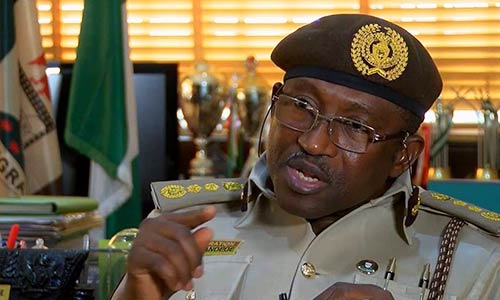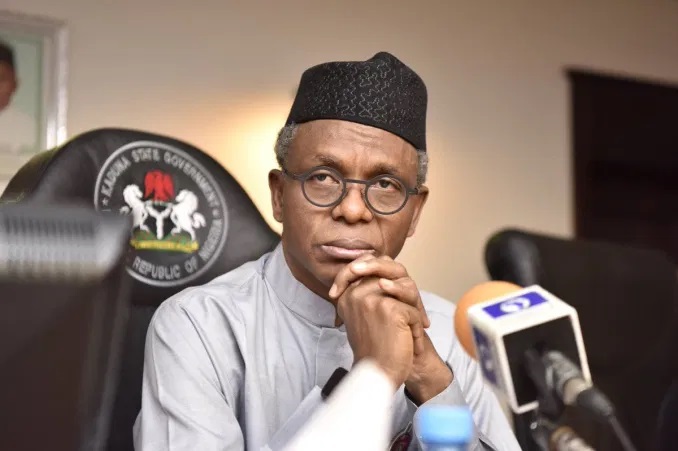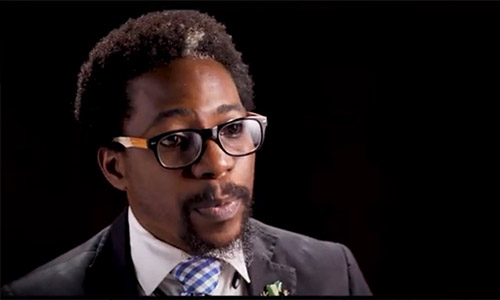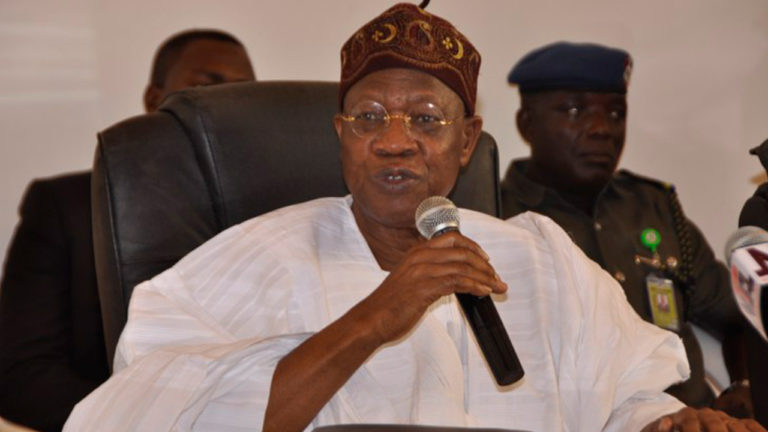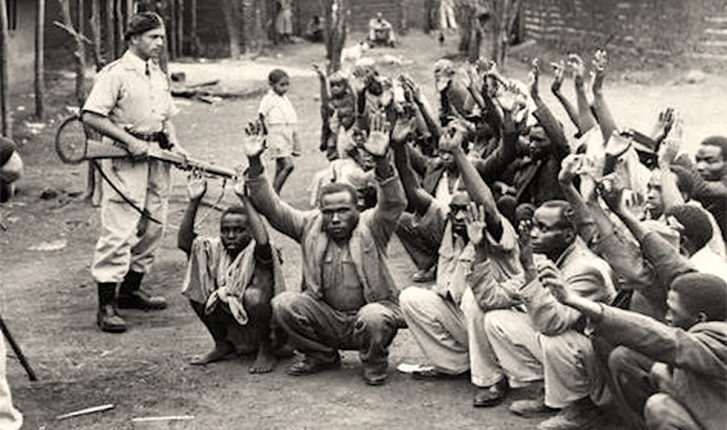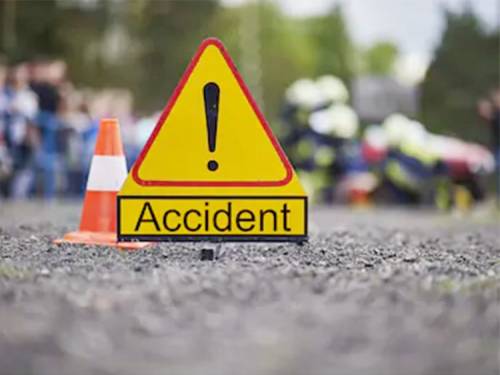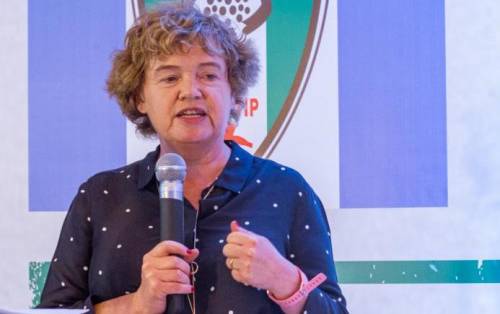By Dele Momodu
Fellow Nigerians, the resistance against the oppression of mostly defenceless Nigerians by officers of the Nigeria Police special squad, known as SARS, came to a deafening crescendo this week. It was never a prophecy foretold. However, thanks to the young men and women who put up amazingly coordinated protests in a few major cities, the #EndSarsProtests hashtag trended and resonated in far-flung places. The movement has gathered momentum and it is imperative that it is kept going. If we sustain this social galvanising of our people against police brutality and intimidation, I foresee that it will be the precursor for successful engagements with those in power on the many more battles that lie ahead, and the manner in which we can crush those who would abuse us and our sensibilities, and even threaten our lives.
It is somewhat distressing and disappointing though that some influential Nigerians, including my humble self, bore the brunt of the misplaced aggression of some social media warriors who couldn’t differentiate between their true friends and their imagined enemies. They accused us of not supporting their agitation for an end to SARS viciousness and cruelty to all Nigerians, a campaign I joined since last week, after Mr Omoyele Sowore and I spoke. Anyway, my simple, polite advice to my young friends is that they should learn some patience, in order not to make the mistakes we made in the past by alienating many people from the struggle through pre-judging and mis-judging them.
I see the same pattern unfolding at an alarming rate. Many of our young ones tend to see successful Nigerians as their enemies who they must drag into the protests by force. I remember Fela Anikulapo-Kuti dragging and dissing Chief MKO Abiola, going to the extent of singing a song, “International Tief Tief” in which he lampooned and lambasted a much maligned and misunderstood man. The same Abiola became a beloved public icon, our martyr for Democracy whose sad demise heralded this present democratic dispensation that has endured for longer than any political dispensation or military that the country has ever had. Abiola suffered many years in prison, more than many of the less successful citizens who were incarcerated around the same time could have done. Unlike them all, he paid the supreme sacrifice for the emancipation of Nigerians and Nigeria by having his life snuffed out at the peak of his life. He blatantly refused to give up his mandate and he paid the ultimate price. What a great shame. The easiest way to lose and waste a struggle is by fighting the wrong people and targets. The rich also cry, but many of them cannot do so publicly, not because they are supermen or because they are scared, but because to do so might weaken the resolve of those who may look up to them for inspiration and encouragement. Some are known to have funded many struggles incognito. A struggle is always bigger than street protests. Indeed, there are several people in the armed forces and our law enforcement agencies who are much more frustrated than you and I about the nefarious activities of SARS and others who give the military and police the bad name.
Back then to SARS. The issues are much bigger than many can imagine. As I tweeted last week, the Nigeria Police has become a menace, and indeed pestilence to our country. Every department needs to be overhauled while some should be collapsed and merged with others. The name of SARS can be changed pronto, but can the reckless characters be removed and replaced soon or immediately! I doubt it because there are senior police personnel in collusion with politicians using the notorious police department to cover up their different disreputable and despicable activities.
Our Police need urgent retraining and reorientation. They require serious education. Moreover, they also deserve our love and support. They are too poor and sometimes have to purchase items with which to do their duties including, uniforms and shoes. I practically weep when I see policemen in rubber slippers carrying out their official duties. Where has the pride in the impeccably and fastidiously turned out policeman gone? They live with their families in squalid conditions not even fit for those who have offended against the laws of the country that they have sworn to protect. It is little wonder that they lack self-respect and self-esteem. They have turned into bullies as a way of making up for those deficiencies.
We need to be systematic in dealing with our intractable problems. Anger alone cannot solve the problems. I read somewhere that “anger often beclouds reasoning”. We should not, and cannot, just chase the Police off the streets. We must replace them with worthy alternatives. Otherwise hardened criminals will capitalise on the obvious lacuna and wreak unprecedented havoc on our society at large. In a mob action, no one knows who is real or not. We may also not even share the same motives and motivation. The organisers of the anti-SARS campaign should therefore beware and be cautious. What will stand them and us in good stead is for them to design a powerful template moving forward.
Beyond SARS, there are still many bridges to cross. Nigeria has witnessed man’s inhumanity to man ceaselessly because we’ve failed to tackle the root causes of the problems that bedevil us. A lot of us have become second-class and third-class citizens in our own country. Many of us are not bothered if the bridges collapse once we have crossed to the other side. Indeed, some are only too willing to pull the ladder up after themselves, so others cannot cross or reach their level. That is the extent of one Nigerian’s wickedness to the other. We worry more about primordial sentiments like ethnicity and religion while we neglect the issues of fairness, justice and the rule of law. We are selective in what concerns us and fail to unite against the repression and subjugation of our fellow citizens.
I pray that this latest protest would metamorphose into a bigger struggle for an equitable society. I pray it would galvanise our people into electing the best of Nigerians and not the dregs of our people. Lack of merit on all fronts is a major cause for concern and the bane of our society. Each of us know the problems and even know the solutions, but we are not ready to make the necessary sacrifice. Successive governments have improved in their expertise in blackmailing and silencing those who may want to criticise their failure and incompetence. I hope the youths will spread their wings across the whole country and unite us in moving progressively towards redemption for our nation. The standard refrain on the part of government is to describe the protests as the handiwork of disgruntled elements or Southern irredentists who wish to break up the country. Nothing can surprise me again if this government could send its goons to go after a revered man of God like Pastor E. A Adeboye for saying what should be obvious, that Nigeria is likely to implode and disintegrate if the country is not urgently restructured.
We need to revamp our infrastructure and try to convince President Muhammadu Buhari to concentrate on Nigeria before wasting our scarce resources on Niger Republic and other African countries of that ilk. Our institutions of learning are in tatters. Our public hospitals are disgraceful. Our utilities lie in ruins, yet we are being asked to pay even more and more for them. Our security network has tragically become the butt of morbid jokes, just as Nigerians lose their lies wantonly and shamefully. Our social, economic and political infrastructure are in an abject state. In short, we presently lack nearly all the indices of human development. This has been long in the making and is not the fault of this present administration alone. Although the truth is that this Administration was swept into power based on its avowed declarations and proclamations that it would work miracles and change our lives for the better. It has failed spectacularly to do this. But for our ambitious, but still deprived, private sector, I wonder where our country would be today.
We should not move on after this relatively successful protest without planning for a better future. We should grab this opportunity that has presented itself on a plater of gold with both hands. We should use it judiciously and let it be a springboard for launching a new and better Nigeria. God help us.
FROM THE ARCHIVES…
I stumbled on a 1965 Time Magazine article on emerging Nigerian millionaires and it made me sad that our country was truly on the path to greatness until some unproductive elements reversed the epic journey. This story should inspire a new generation of serious-minded Nigerians…
“Africa: The Nigerian Millionaires
Along with pride in status and problems of self-government, independence for the 31 nations of black Africa means the emergence of black businessmen. A few flourish on cottage industries, that are the early stage of every economy; some are the opportunistic agents of the colonial companies that formerly ruled them. Now, however, more of Africa’s new businessmen are not only university-trained and experienced but surprisingly sophisticated in trade and finance. In Equatorial Africa, it is no longer unusual to see a $200,000 letter of credit emerging from the folds of a native robe. Nowhere is the new African businessman doing better than in Nigeria, black Africa’s most populous and most prosperous nation. With a population of 55 million and an economy that grows 4% each year, the number of Nigerian millionaires is growing almost as fast as the country itself.
Peanuts & Petroleum. Even before Britain withdrew five years ago, Nigeria had a flourishing trade, exporting peanuts, cotton, palm kernels and cocoa and importing in exchange manufactured goods, foods and tobacco The first native millionaires made their money by competing with the white man for his trade. Among Nigeria’s richest businessmen is Alhaji Sanusi Dantata, 46, who buys and ships much of the rich Kano region’s peanut crop. Dantata’s agents last year bought 84,000 tons from small farmers, paid with traditional handfuls of coin counted out in dusty village squares. Sir Odumegwu Ojukwu 66, knighted shortly before independence, started off by importing dried fish for resale to the non-fishing Nigerians then decided to ship the fish inland himself instead of leaving the job to others. He also amassed the country’s largest fleet of “mammy wagons,” the trucks that carry Nigerians (including market women, which gives the trucks their name) from place to place.
In today’s new Nigeria, businessmen are more likely to succeed by producing new goods or services. Sir Mobolaji Bank-Anthony, 59, known as “The Black Englishman” for his impeccable manners and imperturbable air, began by importing cuckoo clocks and marble statues. He now controls or owns part of ten companies, including a tanker fleet and a charter airline. Emmanuel Akwiwu, 43, earned law degrees at Cambridge; returning home just as Nigeria’s oil boom began he organized a company that now has 70 vehicles, hauls oil rigs and supplies for British Petroleum Ltd. Chief Shafi Lawal Edu, 54, who is president of Lagos’ chamber of commerce, has built a fleet of eight oil tankers. He owns a silver-blue Rolls-Royce, but usually drives around in a Mercedes—thinks it is less ostentatious.
No Need to Clash. Many Nigerian businessmen have taken advantage of the novel opportunities that inevitably accompany broadening prosperity. Chief Timothy Adeola Odutola, 63, a onetime farmer, developed a business to produce bicycle tires for the growing army of bikes, has done so well that he is adding a $1,700,000 plant, plans eventually to harvest his own rubber from his 5,000-acre plantation. A former office worker, Ade Tuyo, 63, cast around for a business that would have ‘first priority in people’s spending” opened a bakery that today has four shops and makes 115 products. The firm’s unusual name—De Facto Works Ltd.—was shrewdly chosen by Tuyo to impress Nigerian bankers with the fact that he was seriously in business
Bayo Braithwaite, 36, one of Nigeria’s younger businessmen, left a British insurance company to found a firm that would write life insurance on Nigerians which the British underwriters avoided. So successful has Braithwaite been that his African Alliance Insurance Co Ltd occupies a six-storey Lagos home office and has 300 bush-beating agents. Braithwaite lives in an elegant house in suburban Ikoyi, where glass and concrete are deliberately intermixed with African folk art to prove that “the two need never clash.”
So, it is, too, with Nigerian business. The Nigerians feel that they and their onetime white masters need never clash. “The time is coming,” says Timothy Odutola, “when we will produce more than we can consume and we will have to look outside Nigeria for markets” Against that time, Nigeria is seeking joint ventures in Europe and the U.S., has also concluded negotiations for eventual associate membership in the European Common Market. Already it exports more to the Market than to its old master, Britain.”
These men were visionaries. Some of us were lucky and privileged not only to hear the stories of Alhaji Dantata, Sir Odumegwu Ojukwu, Sir Bank-Anthony, Chief SL Edu, Chief Timothy Odutola, and Bayo Braithwaite, we were old enough to actually know and meet some of them. Their stories remain an evergreen inspiration for Nigerians. It is a constant reminder that while we may be nearing the nadir, there is a peak that we can aspire to and attain. This summit has been reached before when times may be described as dark and dire. We should therefore be capable of doing much better when we are ostensibly richer and more prosperous.
I believe the best is yet to come for our Nation…

